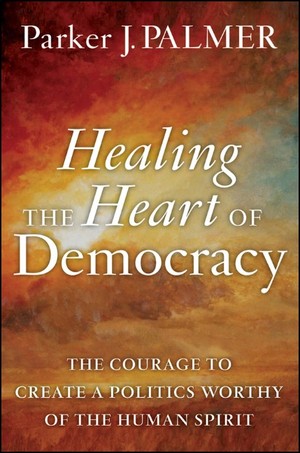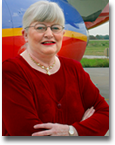 Healing the Heart of Democracy:
Healing the Heart of Democracy:
The Courage to Create a Politics Worthy of the Human Spirit
by Parker Palmer
Review By Ann McGee-Cooper
Parker Palmer has been a special friend and mentor for many years, coming to Dallas frequently to speak and lead study groups as part of the Center for Courage and Renewal. Parker is a Quaker and shares many of the views of Robert Greenleaf, also a very special friend who helped me understand more deeply his concept of servant leadership.
I recently came across this new book by Parker and found it to be very timely and one where I hungered for the next page, the next chapter, the next new insight. He addresses the very timely challenges we are all facing. Discouraged by the corruption of mind and spirit across Washington D.C. and all our political landscape will we withdraw and leave the extremely important business of running our government to others? Or will we find a new purpose as we rediscover our place in creating healthy, meaningful politics within our daily lives….one that can bring our country to a new level of creative interdependence?
Quoting Abraham Lincoln, he notes how as President Lincoln repeatedly chose not to vilify “the other side” but instead used respectful language which visioned drawing together as one nation.
We are not enemies, but friends. We must not be enemies. Though passion may have strained it must not break our bonds of affection. The mystic chords of memory, stretching from every battlefield and patriot grave to every living heart and hearthstone all over this broad land, will yet swell the chorus of the Union, when again touched, as surely they will be, by the better angels of our nature. Abraham Lincoln
Lincoln dared to call out to the better angles of our nature as he called us to heal our differences and become stronger, wiser, more compassionate and united for the greater good.
Parker addresses the choices of having our hearts broken by the brokenness of our political system and landscape and with that withdrawing into cynicism and hopelessness. Or might we experience our hearts being broken open, followed by a heightened compassion and choose to own our part of this complex dilemma/opportunity? Have we through personal neglect not unintentionally been part of what is happening in this moment? And rather than vilify ourselves and each other, how might we bring the best of who we are on behalf of the greater good for our nation? Parker offers five skills to empower this intent.
At a time when we collectively seem to be labelling and blaming the opposition and allowing slick political ads to shape our opinions and politics, can we, will we look deeper and find a way to truly become stronger and better problem solvers as we discover strength through difference? Palmer describes five habits of the heart and then visions ways this can take root in our families, schools, churches, neighborhoods and work places. I hope you will join me in choosing to read this book and then together practice meaningful, respectful dialogue, daring to surface and explore our differences as well as our points of agreement. If ever there was an election that calls for our best selves, it is now. And if ever our country cries out for citizens who dare to own the future rather than delegate it to “others” it is now. For me this is about the courage to bring ourselves as servant leaders to this critical time of recreating democracy of the people, for the people and by the people. Count me in!
“This is not a book to rush through; the ideas call for careful reflection and ongoing debate,” says Deanne Stone in The Whitman Institute’s newsletter, which describes the Center’s Healing Democracy Actions Circles based on Parker J. Palmer’s newest book, Healing the Heart of Democracy: The Courage to Create a Politics Worthy of the Human Spirit. “It’s possible that after cultivating Palmer’s five habits of the heart, participants will emerge from the circles with a better understanding of their own beliefs, more confident to discuss them with people holding different views, and more prepared to act on the five habits in their daily lives.”

 “Ann McGee-Cooper and Associates are a perfect 'fit' for our organization because they live and breathe the Servant-Leadership philosophy. The concept of Servant-Leadership is not new to Southwest Airlines. Our Leaders are passionate about taking care of our Company, and they understand that the best way to do this is to serve others. Ann McGee-Cooper and Associates have become a partner in learning for many of our Employees through the motivational and uplifting presentations they make to our Culture Committee members.”
“Ann McGee-Cooper and Associates are a perfect 'fit' for our organization because they live and breathe the Servant-Leadership philosophy. The concept of Servant-Leadership is not new to Southwest Airlines. Our Leaders are passionate about taking care of our Company, and they understand that the best way to do this is to serve others. Ann McGee-Cooper and Associates have become a partner in learning for many of our Employees through the motivational and uplifting presentations they make to our Culture Committee members.”